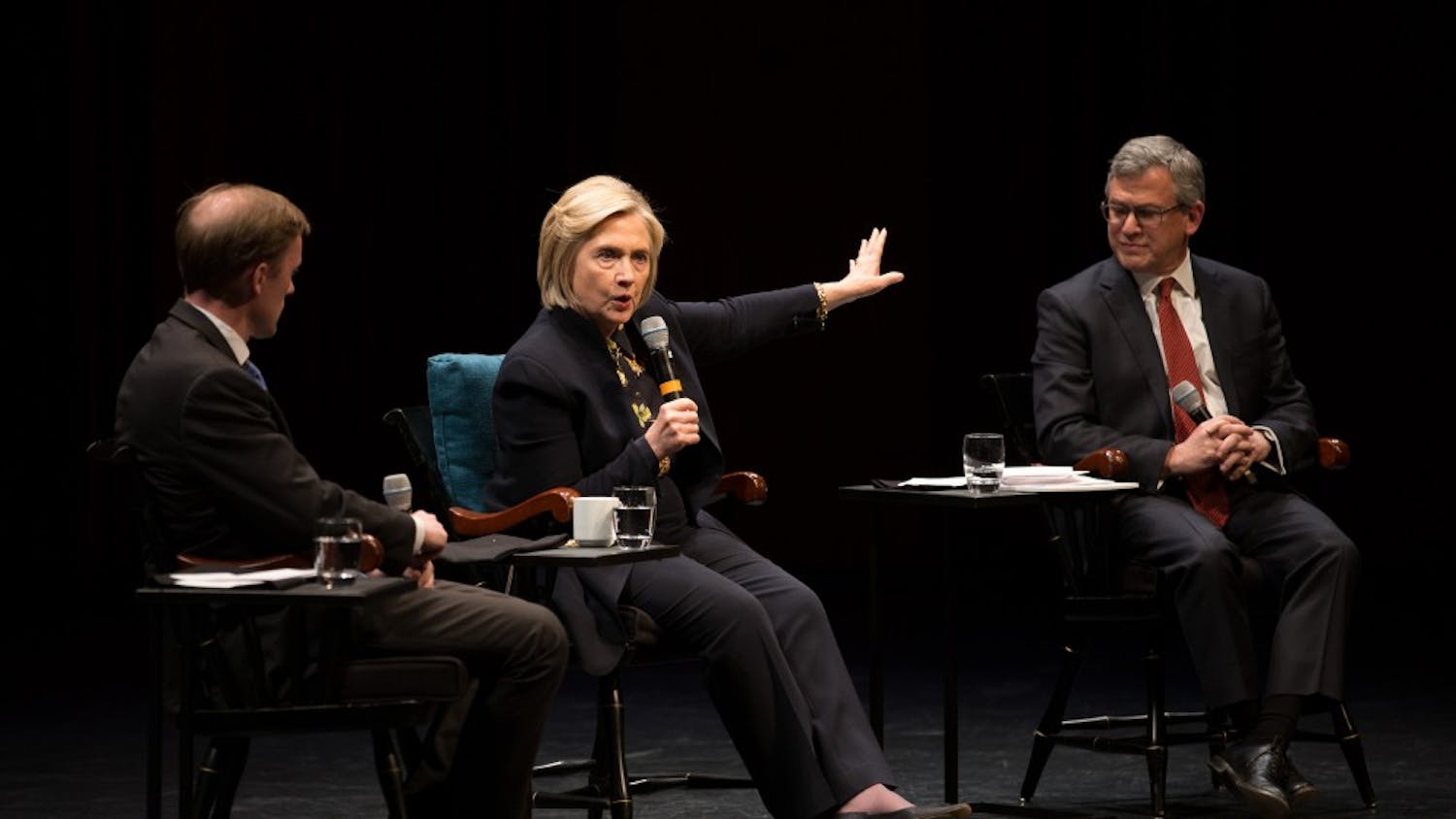Just before midnight last Thursday, as I was settling into bed, I decided to take a quick look at the news. And there was the top story. Qasem Soleimani. Dead.
General Soleimani was the most influential military leader in Iran. He led the country’s Quds Force, an elite segment of the paramilitary Islamic Revolutionary Guard Corps, and he was widely considered the second-most powerful figure in the Iranian regime, after Supreme Leader Ayatollah Khamenei. That is, until an American airstrike targeted Soleimani’s convoy, killing the general.
Shortly after an American drone strike took out Soleimani, President Trump tweeted a captionless photo of an American flag. The message was clear: Victory. Just like, the President seemed to imply, when President Obama dispatched al-Qaeda leader Osama bin Laden or when the Trump administration killed ISIS head Abu Bakr al-Baghdadi.
Like terrorist leaders bin Laden and al-Baghdadi, Soleimani was a bad actor — he played a central role in Iran’s efforts to bolster the brutal regime of Bashar al-Assad, undermine Iraq with Shi’a Islamist militias, promote terror and otherwise destabilize the Middle East. He was a bad man pursuing violent actions in service to a repressive theocracy, and the world is better off without him. But despite Soleimani’s history of violence, his assassination bears little resemblance to the other two targeted killings of terrorist leaders.
When the U.S. killed terrorists like bin Laden and al-Baghdadi, that action occurred in the context of a preexisting armed conflict with a terrorist group. The U.S. was, in both cases, in what amounted to a state of war with al-Qaeda and ISIS. America had no peace to threaten with an assassination, since it was already at war. That’s the crucial difference: We are not at war with Iran, and if you’re like most Americans, you don’t want to enter into conflict with Tehran. But the assassination of Soleimani pushes the U.S. dangerously close to violent confrontation.
Let’s face it: Trump’s assassination of Soleimani was an act of war. There’s no other way to spin it. However bad Soleimani was, his killing was a targeted act of violence intended to weaken the Iranian government. One could hardly blame the Iranians for responding with force — imagine how the U.S. might respond if an Iranian strike took out one of its leading generals. Thankfully, the situation has not yet erupted into all-out war, since Iran is rightly cautious to provoke war against the vastly superior U.S. military, but U.S.-Iran tensions are higher than they’ve been since the hostage crisis of 1979-81.
When authorizing Soleimani’s assassination, the Trump administration must have known that the killing would bring the U.S. to the precipice of armed conflict. After all, previous administrations declined to target Soleimani in light of the potential ramifications of his assassination. But as I’ve written previously, this administration seems hardly dissuaded by the potential for war.
The Trump administration has shown little patience for negotiation with Tehran. In 2018, Trump very publicly withdrew from the Joint Comprehensive Plan of Action — the so-called Iran Nuclear Deal — because he believed that the painstakingly-negotiated settlement was too soft on Iran. In an administration often known for its piecemeal foreign policy, Trump’s Iran policy has stood out for its hawkish and hardline consistency. After leaving the JCPOA, the administration seemed intent on military escalation, sending large numbers of troops to the Gulf, ratcheting up sanctions and coming within minutes of launching missile strikes. These actions presented a real threat to peace in the region. But the assassination of General Soleimani is a provocation beyond any of the administration’s previous actions. The assassination of Soleimani was not just a provocation, but an act of war.
If war comes between Iran and America, the blood will be on America’s hands. Our country assassinated one of Iran’s leaders, an act bound to create further violence. Instead of pursuing diplomacy, our nation resorted to violence — not as a last resort, but as a first resort. There seems to be only one endpoint for the administration’s policy of escalating violence: War. The U.S. has given Iran a more-than-valid casus belli. I only hope the Iranians choose not to act on it.
If you take away one thing from this column, take away this: Our Iran policy is veering rapidly toward war. War in which 18-year-olds from my hometown and yours will be shipped off to die in the desert, war in which cities will be bombed, atrocities committed, lives lost, families divided, civilians killed. Hopefully, if war comes, it will remain a limited war fought through proxies, but no guarantee exists of that. Still, any war will be a tragedy, because it will be a war that we could have easily avoided had we tried diplomacy.
So let’s stop goading Iran into conflict. Let’s stop killing senior Iranian officials, stop massing troops in the Gulf, stop threatening Iran with military action. The United States can counter Iran with diplomacy. That’s the view of most policy experts, and it’s a view that, until recently, the U.S. has used as a basis for its Iran policy.
Killing Soleimani was not, as Trump’s narrative would have it, a simple case of “a bad guy, he’s up to no good, we have to do something.” It formed part of a larger policy of aggression toward Iran, aggression that seems to have its logical endpoint in war. As tensions grow worse by the day, we should hope that our nation’s leaders have the courage and the integrity to reject the administration’s Iran policy and avoid this pointless war.



